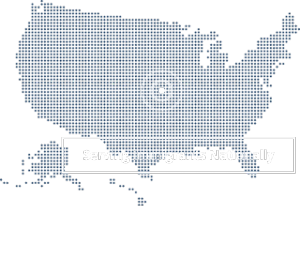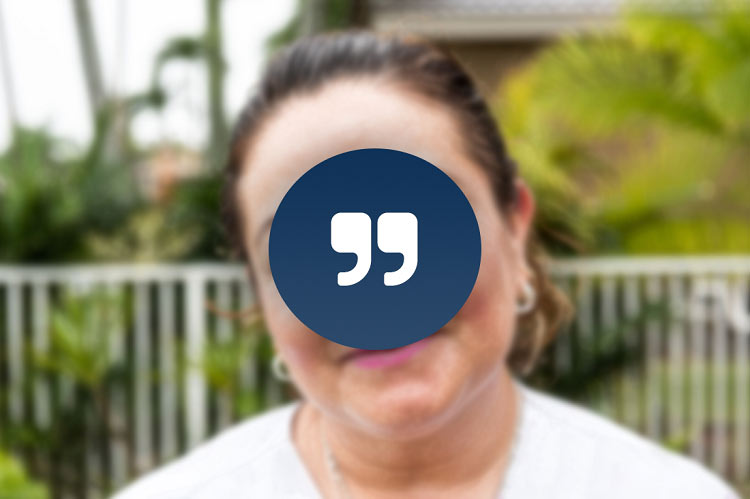How to get a green card after being the victim of domestic violence by your citizen or resident spouse
VAWA: Immigration benefits for victims of domestic violence
How to get a green card after being the victim of domestic violence by your citizen or resident spouse
What is VAWA?
Too often, immigrants are forced to stay in abusive relationships because their abusive family member will refuse to file the required family visa petition in order to control the undocumented spouse, parent, or child. Additionally, the abusive family member may threaten to withdraw a petition or even call immigration officials in an attempt to deport the undocumented family member if he or she attempts to leave, resists the abuse, or calls the police. The Violence Against Women Act (VAWA) allows spouses and children abused by their U.S. citizen (USC) or lawful permanent resident (LPR) spouse or parent, and parents abused by their U.S. citizen sons or daughters, to “self-petition” for a “green card,” without the abusive USC or LPR relative’s help to file the petition. Although women and heterosexual relationships are specifically referenced, many victims of domestic abuse, and who also qualify under VAWA, are men and spouses in same-sex marriages.
VAWA provides “self-petitioners” (the undocumented family member applying for a “green card” based on his or her qualifying relationship to a USC or LPR relative, without the abusive relative’s help) with benefits normally unavailable in regular family visa petitions, such as:
- Employment authorization and no threat of deportation during the months or years a person’s priority date remains pending;
- Adjusting status within the United States, rather than leaving the country for visa processing at a consulate in his or her home country; and
- Receiving public benefits unavailable to other non-citizens.
What do I need to prove my case?
VAWA self-petitions are complicated. You must prove the same types of facts as in a regular family visa petition, but also meet additional requirements that do not apply in typical cases. Further, there are several important exceptions that may change the eligibility requirements. The following list of requirements pertain to VAWA self-petitioning spouses:
1) Proof of the abuser’s lawful immigration status or U.S. citizenship;
Many times, the abused spouse cannot obtain proof of the abusive spouse’s “green card,” or U.S. passport, birth certificate, or naturalization certificate. If unable to comply, the government will attempt to verify an abuser’s status through computer records. However, this may result in delayed processing of the self-petition.
Further, the self-petition may be denied if the search fails. Below are suggested methods to help the USCIS:
- If the abuser is an LPR, the self-petitioner can try looking for the abusive spouse’s “A” number, which can be found on his or her “green card” or other immigration-related documents he or she filled out or received from immigration agencies.
- For information regarding a person born in the U.S., the self-petitioner can contact the state or county office of vital statistics to obtain a copy of the abusive spouse’s birth certificate.
- Friends or relatives can also help the self-petitioner locate the required documents or information.
2) Existence of a valid and bona fide marriage;
The term “bona fide” requires that the self-petitioner did not marry the USC or LPR spouse solely for the purpose of obtaining immigration status. Further, whether a marriage is “bona fide” is based on the parties’ intent at the time of marriage.
Submit a copy of the marriage certificate. If either spouse was married previously, the self-petitioner should submit final divorce decrees or death certificates to prove the legal termination of all prior marriage(s).
3) Demonstrating good moral character (GMC);
Provide police clearance letters covering the three years before the VAWA self-petition was filed, evidence the self-petitioner is not barred from establishing GMC under INA § 101(f), and lastly, proof that he or she does not lack good moral character as considered by the USCIS.
There is an exception for VAWA self-petitioners that may be barred from establishing GMC under INA § 101(f). A VAWA self-petitioner may be excused from a good moral character bar if he or she can show: (1) a connection between the abuse suffered and the act or conviction that caused the moral character problem; and (2) that there is waiver available for that act or conviction under the inadmissibility or deportability grounds.
4) The self-petitioner lived with the abuser;
No specified amount of time is required for the spouses to have lived together, or that the self-petition was filed while the abused spouse lived with his or her abuser. Therefore, living with the abuser for a short time can qualify an abused spouse for immigration relief under VAWA.
5) The abuse occurred during the marriage;
Provide a declaration detailing the abuse suffered, as well as, if possible, the approximate date the abuse began, a description of each incident of physical injury, verbal threats, accounts of other cruelty, attempts to leave or seek help, difficulty in leaving, and feelings about the abuse.
6) The self-petitioner was battered or has been the subject of extreme cruelty by the abuser spouse, including a wide range of behaviors such as:
- Threats to beat or terrorize the abused spouse;
- Hitting, punching, slapping, kicking, or hurting the abused spouse in any way;
- Emotionally abuse, such as insults at home or in public;
- Sexual abuse or exploitation, including molestation, forced sex without consent, or forced prostitution;
- Threats to take the children away or hurt them;
- Threats of deportation or calling immigration officials;
- Controlling the abused spouse’s every movement;
- Forcibly detaining the abuse spouse;
- Separate instances of behavior that would not normally constitute abuse, but added together shows a pattern of abuse; or
- Threatening or committing violent acts against a third person or thing in order to scare of pacify the abused spouse.
7) The abuse occurred within the U.S.;
Police reports, civil protection orders, criminal court records, complaints, or medical records may satisfy this requirement.
8) The self-petitioner must either resides in the U.S. or meet certain requirements to file from abroad; and
Noncitizens living abroad can self-petition if the abusive spouse is an employee of the U.S. government or member of the U.S. armed forces, or the abusive spouse subjected the self-petitioner to battery or extreme cruelty in the U.S.
9) The self-petitioner must be admissible to the U.S.
If subject to certain grounds of inadmissibility, the self-petitioner may be eligible to apply for a waiver of those grounds.
How does my relationship with the abuser affect my case?
What if i'm not formally married to the abuser?
There are exceptions to having a formal marriage:
1) Common law marriages, which are valid in some states; or
2) The abuser’s past or concurrent marriage was not legally terminated, but the abused spouse believed the marriage was valid and a wedding ceremony was performed.
If you do not qualify for VAWA because you were not legally married, you should consider whether applying for a U visa is an option. Generally, domestic violence crimes are statutorily-enumerated “qualifying criminal activities” for purposes of U nonimmigrant status. The U visa is temporary but provides employment authorization and can lead to legal permanent resident status.
What if i'm already divorced form my abusive spouse? Can I still apply for VAWA?
You can still apply in some situations.
1) If the marriage was ended due to abuse, the self-petition can be filed within two years of divorce; or
2) If the marriage is terminated for any reason after the self-petition was filed, that termination will not affect the self-petition.
Please note, you cannot remarry before your Form I-360, Petition for Amerasian, Widow(er), or Special Immigrant, is approved or else it will be denied. However, remarriage after approval of the Form I-360 will not affect the validity of the petition.
What if I never filed a police report against my abusive spouse?
It’s not a problem.
First, evidence of physical abuse is not required.
Second, police reports are only one method of meeting the evidentiary requirements. For example, a police report may prove the abuse you suffered occurred in the U.S.
Other evidence to consider submitting includes civil protection orders, criminal court records, complaints, medical records, evidence of torn clothing, broken furniture, photographs of injuries, or notarized statements or declarations signed under penalty of perjury from witnesses, such as friends, relatives, neighbors, counselors, shelter workers, social workers, medical workers, clergy members, or experts on domestic violence, which support the self-petitioner’s statements, may satisfy various requirements as substitutes for a police report.
What if I dropped a criminal charge against my spouse? Can I still apply for VAWA?
If you dropped any pending criminal charges against your abusive spouse, you can still self-petition under VAWA. The eligibility requirements do not require a criminal prosecution or conviction of the abusive spouse. Additionally, if you are the beneficiary of a VAWA petition filed by an abusive spouse, you will be able to transfer the priority date of the Form I-130, Petition for Alien Relative, to the Form I-360. This can be extremely important since it may result in an earlier priority date and a shorter waiting time for getting a “green card.”
Frequently Asked Questions Regarding VAWA
Can I get a green card through VAWA?
Yes, an approved Form I-360 will first place you in “deferred status,” which simply means that you can lawfully remain in the U.S., without the threat of deportation, while your priority date remains pending. Once your priority date becomes current, you may apply for adjustment of status to become an LPR. If you are a self-petitioning spouse, your children listed on your approved Form I-360 may also be eligible to apply for a green card.
Can I apply for VAWA from outside the United States?
Yes, noncitizens living abroad can self-petition if the abusive spouse is an employee of the U.S. government or member of the U.S. armed forces, or the abusive spouse subjected the self-petitioner to battery or extreme cruelty in the U.S.
Will my spouse find out that I’m applying for VAWA?
Due to the recognized dangers for people still in abusive relationships or domestic abuse survivors, your spouse will not find out that you are self-petitioning under VAWA. All agencies within the Department of Homeland Security (DHS), including the USCIS, are legally prohibited from disclosing that a victim has applied for VAWA benefits.
Will my spouse get in trouble if I apply for VAWA?
All VAWA applications are confidential, even from law enforcement authorities. Your abusive spouse will not know you a self-petitioning under VAWA.








